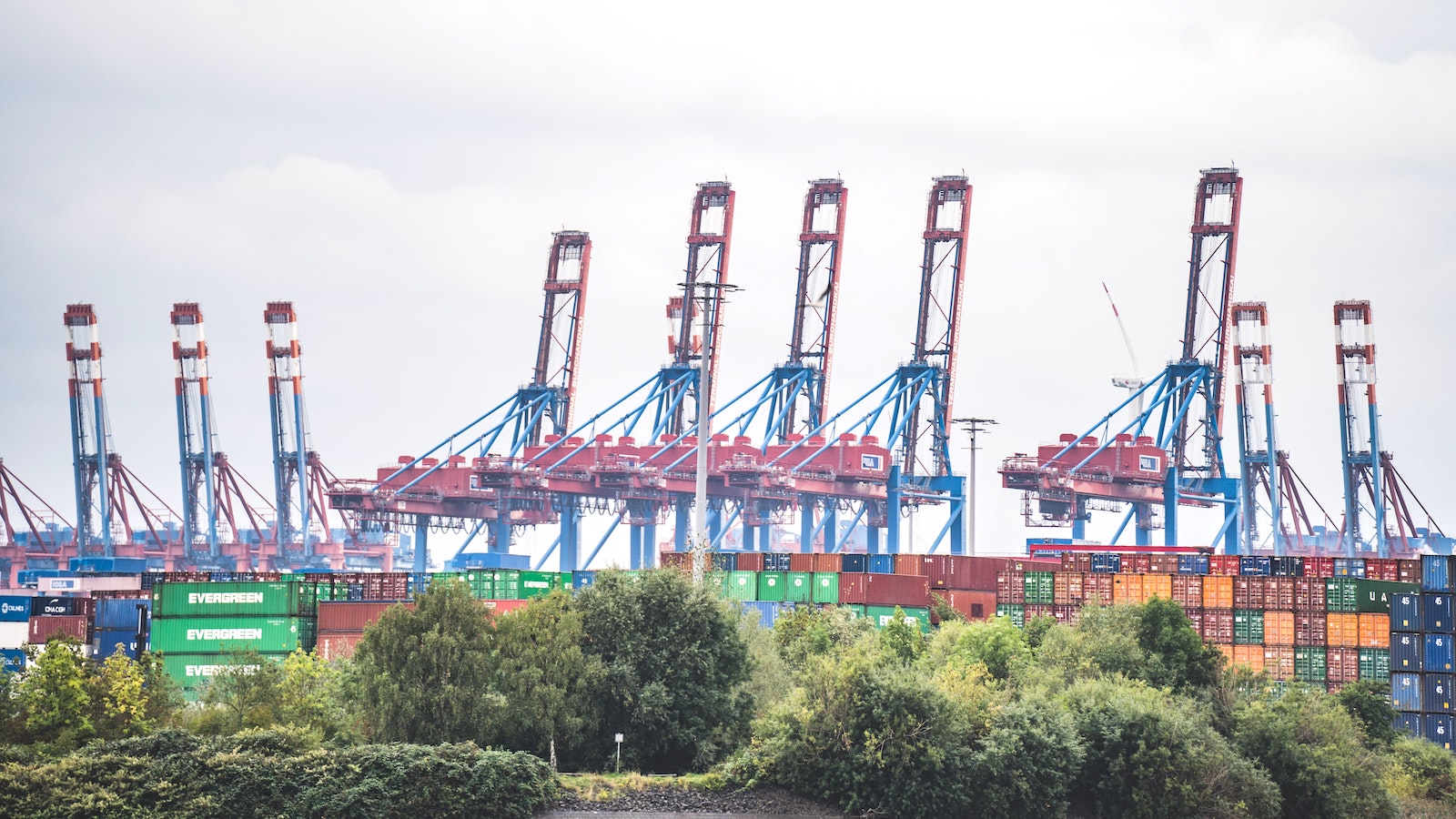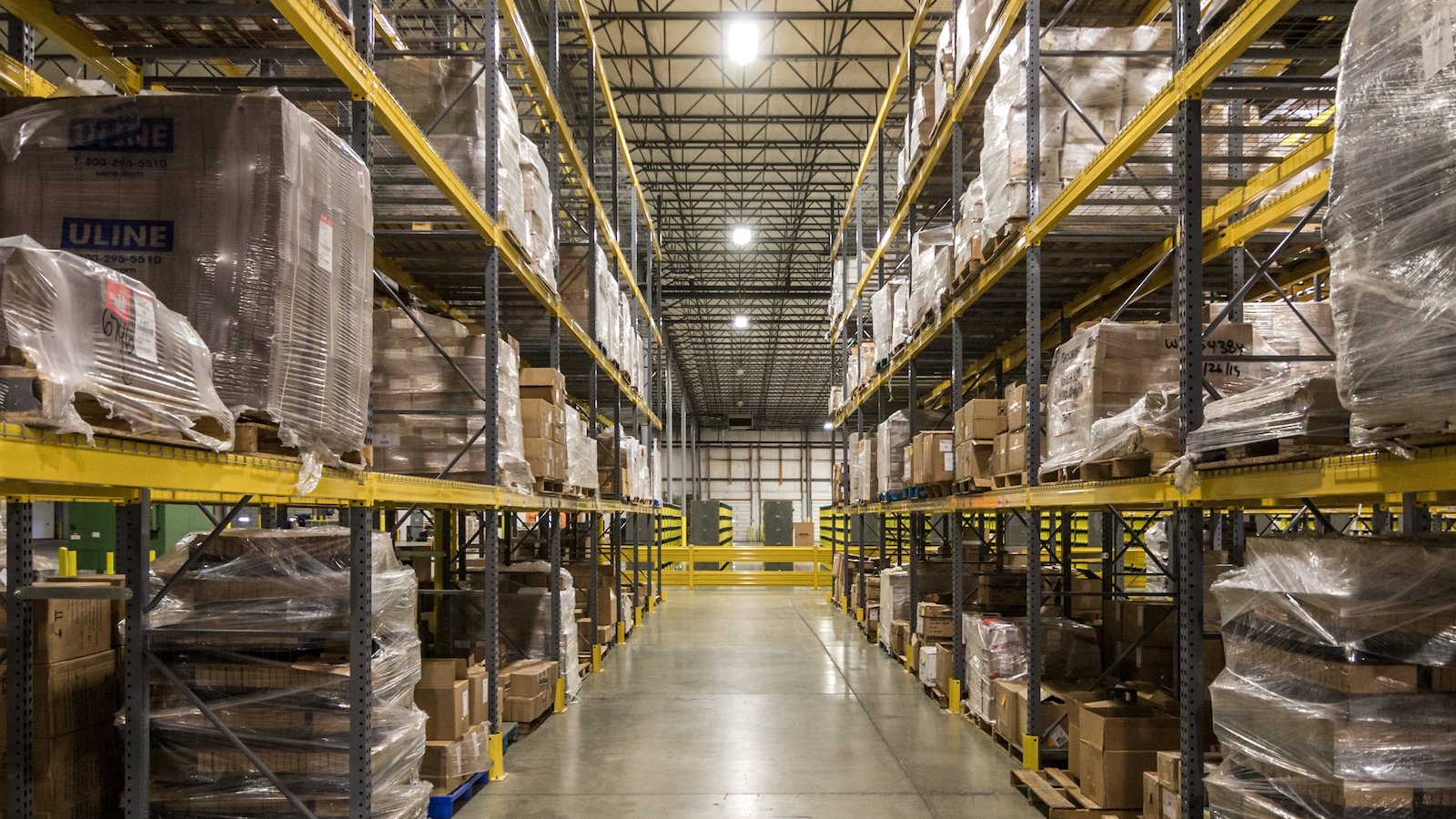Table of Contents
** Minutes
Established logistics companies vs shiny startups
What to look for in a logistics startup
Top logistics startup companies to keep your eye on
Think about your most recent purchase. Regardless of what it was (new tube of toothpaste, dog treats for your pup, or a new filter for your water purification system), logistics is the system behind getting it into your hands.
The logistics industry is made up of a highly interconnected supply chain network that manufactures raw materials into finished products and connects producers and consumers through various channels. This sequence of events involves many moving parts, including purchasing, packaging, shipping, and transporting materials to distributors to sell to the end customer.
Many functions are required to complete this, including:
Maritime, road freight, digital freight, truck, and/or air delivery services
Warehousing and storage
Freight forwarding
Handling raw materials
Order fulfilment
Inventory management
Demand planning
Customer satisfaction and brand loyalty
Returns and exchanges
The logistics sector is rapidly growing and there is no shortage of groundbreaking technology and premiere partners in North America, Europe, and beyond. To help support new customer trends (e.g. expecting same day delivery, two-day shipping, etc.) and compete with giants such as Amazon, ecommerce businesses need superb partners that can deliver results to meet (and even exceed) those expectations.
As a business owner, there are seemingly endless options for companies to utilise. In this blog we’ll discuss working with startups — including how they’re different from traditional logistics partners — and identify some of today’s top logistics startups.
What is a logistics startup?
A logistics start up is a newly-founded company (or startup) that handles logistics processes.
The logistics ecosystem is continually changing. Logistics startups are often born out of opportunities to solve problems and inefficiencies. These startup companies are shaking up traditional systems and creating new technologies, optimisations, automations, and ways to access data to set ecommerce businesses up for success.
Established logistics companies vs shiny startups
There are many moving parts when operating in the ecommerce industry. In order to navigate the space, using a logistics company is a best practice. The two most common options you’ll have when it comes to types of logistics companies to use are a traditional logistics company or a newer startup.
To help you decide which is a better fit for your business and operation style, here are some key differences between the two.
Established logistics companies
UPS, J.P. Hunt, CDW, and similar businesses may come to mind when you think of traditional logistics companies. Some of the world’s largest logistics companies are over 100 years old. With this many years of experience, there are various aspects to consider.
Pros:
Established track record and decades of experience
Many companies are publicly held
Businesses have been awarded various prestigious accolades
Cons:
Fees and requirements may not be feasible for small businesses
Technology and processes may not be as advanced
Resting on laurels of traditional systems and processes
New logistics startups
Shiny new startups are exciting alternatives to traditional logistics giants, but there are different factors to weigh.
Pros:
Fast-paced atmosphere
Designing systems and innovations that solve problems of today’s shippers
More agile on fulfiling requests and custom solutions
Many are SaaS companies
Cons:
Less brand recognition
May not be able to fulfil large scale requests
What to look for in a logistics startup
There’s a lot of criteria to consider when you’re thinking about partnering with a logistics startup. Here are some key details and ‘green flags’ to ensure you’re working with a worthwhile company.
Funding
- Surveys show that one of the top reasons businesses fail is a lack of funding or cash flow. When a startup has significant funding, they are better able to operate their business, and are therefore able to be a better partner for your brand. Research what funding round the startup has reached to determine their level of fundraising.
Investors
Securing investors is a vote of confidence for a tech startup. Creating relationships with investors allows startups to secure cash flow to operate and implement their business.
Niche
When businesses focus on a certain niche within a larger market, they are better able to hone in on customers’ needs and provide solutions to remedy their pain points.
Track record
Look for a tech startup that has a robust track record and has proven their success, timeliness, and adherence to SLAs. Focus on companies that have a reputable online presence and has relationships with credible industry organisations or groups.
Testimonials
Over half of buyers will use a startup if it has a star rating of 4 or more which reveals how important testimonials and social proof are to successful startups.
Top logistics startup companies to keep your eye on
There is a wide array of needs in the logistics industry, and an even wider array of logistics providers created to meet those needs.
While there are many logistics services to choose from, here are 12 new logistics companies that have shaken up the space with innovative ideas, technology, processes, and more in various verticals.
| Company | Overview | Funding | Investors |
|---|---|---|---|
| Anvyl | Anvyl is a technology platform that streamlines brands’ supply chain processes, offers order and payment tracking, and provides logistics visibility. | Series A Funding: $11.8 M | Redpoint, Company Ventures, First Round Capital, and more |
| Arka | Arka offers customisable and sustainable packaging that allows brands to cultivate an enhanced brand experience. | Seed Funding: $125k | Asimov Ventures, Montage Ventures, VTF Capital, and more |
| Cin7 | Cin7 provides cloud-based inventory and order management software to increase efficiency. | Equity Round Funding | Rubicon Technology Partners |
| Cogsy | Cogsy’s software solution takes business’s data and creates forecasts for inventory to minimise stockouts and grow revenue. | Seed Funding: $5M | Accel, Bain Capital Ventures, Sugar Capital, RiverPark Ventures, and more |
| Gorgias | Gorgias is an artificial intelligence ecommerce customer helpdesk tool that enhances the support experience and aids in conversion and customer satisfaction. | Series B Funding: $42.4M | Alven, FJ Labs, Greycroft, and more |
| Happy Returns | Happy Returns is a platform that enables customers to complete easy returns in-person or by mail and allows businesses to retain revenue and increase loyalty. | Venture Funding: $25M | U.S. Venture Partners, Upfront Ventures, PayPal Ventures |
| Inventory Planner | With Inventory Planner, businesses are able to do inventory forecasting, create purchase orders, identify trends, and manage stock for multiple warehouses. | Private Equity Backed | Parent Company: Brightpearl |
| Linnworks | Linnworks allows business owners to connect multiple marketplace channels in their logistics operation to automate processes and capture revenue. | Private Equity Funded | Marlin Equity Partners |
| Loop | Loop is a returns platform that creates a seamless returns and exchange process. | Series B Funding: $75.5M | CRV, Renegade Partners, Peterson Ventures, Ridge Ventures, and more |
| Route | With Route, customers are able to track their packages in real-time, protect purchases, and more. | Series B Funding: $48.5M | Craft Ventures, Album VC, Justin Timberlake |
| Rush | Rush provides customers with tracking information via smart emails and SMS messages to lessen support tickets and increase customer satisfaction. | Early Stage VC: $300K | Unknown |
| Shippo | Shippo offers business owners features to improve their order fulfilment process to make it cheaper and faster. | Series E Funding: $154.3M | Bessemer Venture Partners, Uncork Capital |
Anvyl
Business owners across the world lose out due to cost overruns, late shipments, defective shipments and more. Anvyl creates a more efficient process for businesses by helping them meet deadlines and budgets, adapt to changes in supply or demand, pinpoint potential delays, improve communication with suppliers, and more.
Arka
Founded in 2015, Arka is dedicated to helping businesses curate a custom brand experience through sustainable packaging materials. Arka offers low minimums, premium materials locally made in the USA, quick turnaround, and flexibility to scale.
Cin7
With Cin7, business owners are able tailor inventory and order management to suit their respective needs. Brands can connect products, sales channels, warehouses, workflows, reports, and more.
Cogsy
A self-proclaimed “extra Head of Operations,” young startup Cogsy is logistics technology that inputs a business’s data to create accurate forecasts and point them toward a direction of growth rooted in data-driven precision.
Gorgias
Based in San Francisco, Gorgias creates a better customer support experience by enhancing, automating, and speeding up the process for support teams and customers alike. Ecommerce brands can edit orders, refund payments, set automated tasks, close out tickets, and more directly from the Gorgias helpdesk.
Happy Returns
Ecommerce businesses are able to retain revenue, reduce cost, increase customer loyalty, and more with Happy Returns’ omni-channel return management platform. Backed by parent company PayPal, Happy Returns assists both customers and business owners by making returns easy.
Inventory Planner
With Inventory Planner’s numerous features, brands can keep their online store and warehouse stocked. Businesses are able to automate reorder processes, create purchase orders, connect sales channels in one place, get suggestions on old stock to move, and much more. Inventory Planner was acquired by Brightpearl, an omnichannel retail operating system, in 2021.
Linnworks
Businesses are able to gain control of their operations and connect all of their platforms with Linnworks via desktop or mobile app. With nearly a decade under their belt, Linnworks’ logistics platform allows brands to effortlessly manage platforms to gain insights about their business and optimise fulfilment.
Loop
With an emphasis on exchanges, Loop helps online retailers turn returns into additional revenue. By encouraging customers to exchange products, Loop enables businesses to delight customers and increase their number of recurring customers.
Route
Get real-time tracking information for last-mile deliveries complete with delivery status updates using Route, an emerging unicorn based in Lehi, Utah. With features such as “1-Click Protection” and an issue insight dashboard, customers will be delighted with shipping and delivery.
Rush
Founded in Bulgaria in 2020, the Rush app allows business owners to increase revenue and customer satisfaction by nurturing customers post-purchase. Rush’s email or SMS notifications help reduce tracking inquiries and alleviate stress on customer support teams.
Shippo
With over 100k customers, Shippo has become a cornerstone of ecommerce business operations. Shippo aggregates merchant’s shipping needs into one platform to get the best carrier rates, find the best shipping option for orders, and more.
ShipBob: The leader in tech-enabled 3PLs
Founded in 2014 in Chicago, ShipBob was established by entrepreneurs Dhruv Saxena and Divey Gulati who identified a need for more efficient fulfilment and shipping. ShipBob achieved unicorn status in June 2021 after securing $200 million in Series E funding. Bain Capital Ventures, Hyde Park Venture Partners, Menlo Ventures, Softbank, Silicon Valley Bank, and more have recently invested in ShipBob. In total, ShipBob has raised $330.5 million in funding to operate a logistics network in the United States, Canada, United Kingdom, European Union, and Australia.
ShipBob is a technology company and fulfilment provider that has an all-in-one, out-of-the-box solution. While other logistics companies can do one or two things really well, ShipBob excels by providing many services (warehouse, inventory, and order management; fulfilment; shipping/shipment tracking; data analytics; demand forecasting; inventory planning and distribution) under one roof, making it simple for merchants.
Read this review to learn more about ShipBob’s logistics capabilities compare to other 3PLs.
Logistics startups FAQs
Here are answers to the top questions about logistics startups.
What is the best logistics startup?
There are seemingly endless logistics solutions, many of which are innovative and offering state-of-the-art technology. The “best” logistics startup for one company may not be the best for another; the right partner for your business will depend on your company’s logistical needs. When evaluating startups, keep in mind each startup’s funding level, array of investors, track record of growth and delivery, and testimonials from current customers.
What is the best 3PL company?
ShipBob is the leading tech-enabled 3PL that offers fulfilment for thousands of ecommerce brands with an international fulfilment network across the US, Canada, Europe, and Australia.
Are logistics startups profitable?
Logistics startups can yield profitable results, but it takes time. 84% of startups are profitable in the first four years.



